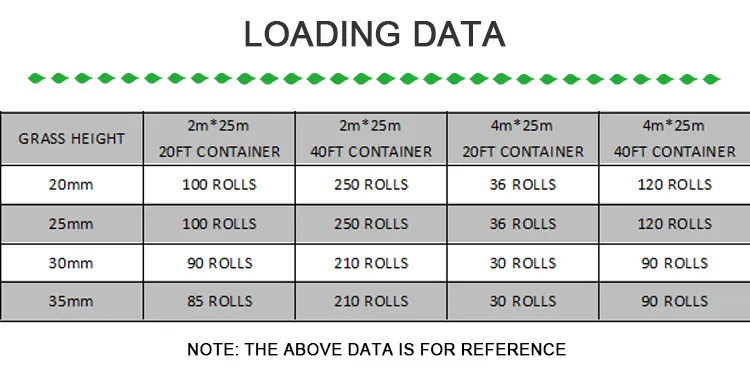
- Afrikaans
- Arabic
- Belarusian
- Bengali
- Czech
- Danish
- Dutch
- English
- Esperanto
- Estonian
- Finnish
- French
- German
- Greek
- Hindi
- Hungarian
- Icelandic
- Indonesian
- irish
- Italian
- Japanese
- kazakh
- Rwandese
- Korean
- Kyrgyz
- Lao
- Latin
- Latvian
- Malay
- Mongolian
- Myanmar
- Norwegian
- Persian
- Polish
- Portuguese
- Romanian
- Russian
- Serbian
- Spanish
- Swedish
- Tagalog
- Tajik
- Thai
- Turkish
- Turkmen
- Ukrainian
- Urdu
- Uighur
- Uzbek
- Vietnamese
Creating Ideal Outdoor Turf for Your Putting Green Experience
Oct . 18, 2024 05:49 Back to list
The Importance of Choosing the Right Turf for Your Outdoor Putting Green
Creating an outdoor putting green can be a rewarding project for golf enthusiasts, providing a fantastic way to practice your short game right at home. However, one of the most crucial aspects of constructing an effective putting green is selecting the right type of turf. The turf not only impacts the aesthetics of your green but also plays a significant role in its playability and durability. In this article, we will explore essential factors to consider when choosing outdoor putting green turf and the benefits of utilizing quality materials.
Understanding Turf Types
When it comes to outdoor putting greens, two primary types of turf are available natural grass and artificial turf
. Each option has its own advantages and disadvantages, and the choice largely depends on personal preferences, climate, budget, and maintenance expectations.Natural Grass Natural grass offers a traditional feel and can be more visually appealing. However, it requires regular maintenance, including mowing, watering, fertilizing, and pest control, which can be time-consuming and costly. Additionally, natural grass is highly sensitive to weather conditions, such as excessive heat or heavy rainfall, which can affect its consistency and quality for putting.
Artificial Turf The rise in popularity of artificial turf has revolutionized the way putting greens are designed and maintained. High-quality synthetic turf mimics the look and feel of natural grass while offering numerous advantages, including minimal maintenance, durability, and consistent playing conditions regardless of the weather. It doesn't require watering or mowing and is resistant to pests and diseases, making it a preferred choice for many homeowners.
Key Factors to Consider
1. Turf Pile Height The pile height of the turf refers to the length of the grass blades. For putting greens, a shorter pile height, typically between 1/4 to 1/2 inches, is ideal. This allows for a smoother putting surface and more accurate ball roll. Ensure that the turf’s fibers are fine and uniform to enhance the overall appearance and playability.
putting green turf outdoor

2. Turf Density A dense turf ensures better resilience and reduces the chances of damage. More dense fibers can withstand foot traffic and are less likely to flatten, providing a consistent putting experience. It's essential to examine the tufted density of the turf you select to ensure it fits your needs.
3. Material Quality The quality of the materials used in the construction of the turf plays a crucial role in its longevity and performance. Look for UV-resistant turf made from high-quality polyethylene or polypropylene that can withstand sun exposure without fading. A quality turf will retain its color and texture longer, providing a better playing experience.
4. Drainage Properties Proper drainage is vital in maintaining a functional putting green. Choose turf that allows for effective water drainage to prevent puddles and waterlogging. Some synthetic turfs come with perforated backing designed for efficient drainage, ensuring that your green remains playable even after rain.
5. Infill Options When installing artificial turf, selecting the right type of infill is essential. Infill materials help weigh down the turf, provide support, and influence the overall feel of the putting surface. Options include sand, crumb rubber, or a combination of both. Each type of infill can affect ball roll and cushioning, so consider your preferences carefully.
Costs and Installation
The cost of installing an outdoor putting green with quality turf can vary significantly based on the size of the green, materials used, and the complexity of the installation. While natural grass might initially seem cheaper, the long-term maintenance costs can add up. Investing in high-quality artificial turf may have a higher upfront cost, but the reduced maintenance and increased longevity often make it a more economical choice over time.
Conclusion
In conclusion, selecting the right turf for your outdoor putting green is crucial for achieving an enjoyable and practical practice area. Whether you opt for natural grass or synthetic turf, understanding the key factors such as pile height, density, material quality, drainage, and infill options will lead you to make an informed decision. Investing in quality turf will not only enhance your putting experience but will also provide a beautiful addition to your outdoor space, allowing you to practice your game in the comfort of your own backyard.
-
The Benefits of Artificial Turf for Indoors
NewsJul.15,2025
-
How Artificial Grass Suppliers Ensure Quality Products
NewsJul.15,2025
-
Artificial Grass and Pets: A Space for Relaxation
NewsJul.08,2025
-
Balcony & Outdoor Decoration with Artificial Grass
NewsJul.08,2025
-
Best Indoor Artificial Grass for Home
NewsJul.07,2025
-
Best Pet Turf for Dogs: Safe & Durable Artificial Grass Options
NewsJul.07,2025
Products categories









